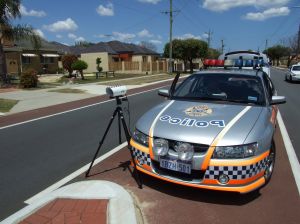 When you notice the police lights flashing in your rear view mirror, you may understandably be filled with feelings of stress and anxiety. You may not know why you are being pulled over, or you may feel a twinge of guilt for being caught breaking the law. While this type of scene may have been depicted countless times in TV shows and movies, the fact is that you generally do not want to play out the scenes that you have seen in movies and TV shows. In fact, you should follow a few important tips when you are being pulled over.
When you notice the police lights flashing in your rear view mirror, you may understandably be filled with feelings of stress and anxiety. You may not know why you are being pulled over, or you may feel a twinge of guilt for being caught breaking the law. While this type of scene may have been depicted countless times in TV shows and movies, the fact is that you generally do not want to play out the scenes that you have seen in movies and TV shows. In fact, you should follow a few important tips when you are being pulled over.
Pull Your Vehicle Over As Soon As It Is Safely Possible
As soon as you notice police lights flashing behind you and you are aware that you are the vehicle that is being pulled over;
- You should slow your vehicle down and indicate your intention to pull over by putting on your turn signal.
- This shows the police officer that you have every intention of obeying his or her instructions to pull over and that you are not attempting to flee.
- The police officer will understand that you are looking for a safe place to park your vehicle.
- Keep in mind that he or she will need to have room to get out of the patrol car and to walk to your door.
- You may also be instructed to step outside of the vehicle. With this in mind, look for a parking lot, a quiet side street or an area with a large shoulder on the side of the road.
Pull over at the first opportunity you have, and avoid passing over several options.
Get Your Proof of Insurance and Driver’s License Out
As soon as your vehicle is safely parked, reach for your proof of insurance and driver’s license.
- The law enforcement officer may take a minute to walk up to your vehicle’s window if he or she is running the license plate first.
- When the police officer approaches your vehicle, keep your hands where they are visible.
- Avoid making sudden movements or gestures that may alarm the police officer.
- Keep in mind that these professionals face unique and often dangerous situations, and they are trained to think that you may be reaching for a weapon if your hands disappear suddenly from view.
- The officer will inform you about the reason for being pulled over, and he or she may ask if there is a reason for the violation.
- Then, he or she will ask you for your proof of insurance and your driver’s license.
The officer may take these items back to the patrol car for a few minutes to have the information reviewed with the police department. That’s normal!
Be Respectful, But Know Your Rights
Nobody wants to receive a traffic ticket. It can take time to get pulled over when you are on your way somewhere, and the ticket itself can cost you several hundred dollars in many cases. Clearly, this can be an inconvenience. However, the police officer is doing his or her job enforcing the law.
- Speak with courtesy and respect when addressing the officer. Answer the questions that are asked, but do not offer additional information.
- Never attempt to bribe the officer or attempt to get out of the ticket in some way.
- It is wise to understand what your rights are for search and seizure in your state.
- Generally, the police officer will need a reason to search your vehicle, but in many states, you can deny an unfounded request to search a vehicle. If this happens, the officer may obtain a court order to search the vehicle, and this can take some time.
Being pulled over is never a fun experience, but it also does not need to be a dramatic ordeal. When you follow these tips, you can take a step toward ensuring that your incident is rather routine in nature and does not result in unnecessary complications for you.
[Image: http://www.freeimages.com/photo/977059]
Scott Desind
Latest posts by Scott Desind (see all)
- How to Request the County Seat and Fight Your California Traffic Ticket - May 21, 2023
- Don’t Even Touch That Cell Phone - July 13, 2022
- Innocent Until Proven Guilty - March 2, 2020

